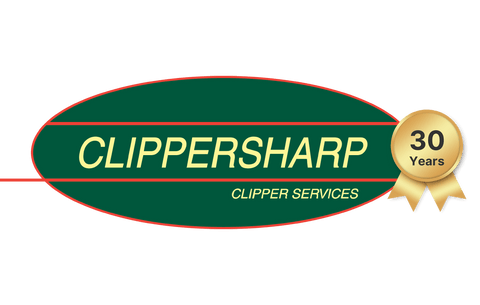Love or loathe Clipping Your Horse?
Horse clipping is one of those jobs that many horse owners put off. It can be time consuming, itchy and an unpopular job to many, but some horse owners love it!
If you understand how to use horse clippers correctly, including tensioning, and using professionally sharpened blades, factor in a quiet moment in the yard when the horse is relaxed and calm, it can then be an enjoyable and satisfying experience for both.
A well clipped horse is a joy to look at, gives a clean-cut, well-turned-out look and makes washing down and grooming a lot quicker and easier during the winter months.
Prior to clipping a pre-wash or hot clothing will really help with getting a good finish. A greasy, dirty coat will slow the blades down, cause strain on the clipper motor, transfer more heat to the blades and give lines, so it’s well worth presenting a well-groomed and clean horse prior to starting clipping work.
Why Clip?
Once the summer turns to Autumn, the hair on a horses’ coat really starts to grow in readiness for the winter season. This is the time to decide whether your horse will benefit from being clipped. Removing excess hair on a horse that is going to be kept in work over the winter period, is often the best way forward. By removing the excess hair, it allows the body to cool more efficiently, as well as being quicker to wash or groom off after exercise and avoids the horse becoming damp and chilled.
If hair is removed, extra rugs and adequate shelter may be needed, particularly if the animal is being kept outdoors.
Keeping hairy legs clipped through the winter can also help in certain cases as well as making it easier to use topical applications on itchy legs and mud fever. Certain horses and ponies do get age related conditions, such as Cushing’s disease, and help with shedding their coats is made easier, particularly in the summer, if they are still holding on to their heavier coats.
What Clipper to choose?
There are so many brands of horse clippers to choose from, so it’s worth researching as they are an investment, to ensure the correct choice is made at the outset. Ask yourself how many clips per year would be needed, the type of coats that are being clipped, thick, fine, soft or coarse, and whether a mains, or battery option is preferred. We've put together a series of guides to help choose the best clippers for cobs, thoroughbreds, nervous horses and more - have a look here.
Horse clippers are presented into categories to make the choice more straightforward. Light duty, medium duty, heavy duty and re-chargeable.
Light Duty clippers tend to be very much quieter to use and are ideal for noise sensitive, and young horses, as well as being lighter and narrower to hold. They are suitable for full body clips, and can double up as a trimmer, by fitting a narrower blade. They are suitable for all types of horses providing they don’t have dense, coarse coats, as the blade may struggle.
Medium Duty clippers are the most popular choice for many, they come in both mains and re-chargeable models and fit most owners’ requirements. Full specifications of each of these within the Brands can be found on most clipper specialists’ websites.
Heavy Duty horse clippers tend to be the choice of professionals who are clipping most days. They have larger, more powerful motors than can cope with all types of coats, but these tend to be heavier and noisier to use as a result.
Re-chargeable horse clippers offer more flexibility for operating in any area and are safer to use when there is no electric cord to get in the way. All latest designs come with long lasting Lithium-Ion batteries giving work time from one to three hours depending on the brand and give reliable service.
As always, don’t rely on social media for your recommendations, talk to a clipper specialist dealer, or reach out to the clipper brands for more detailed advice before making your final choice.
